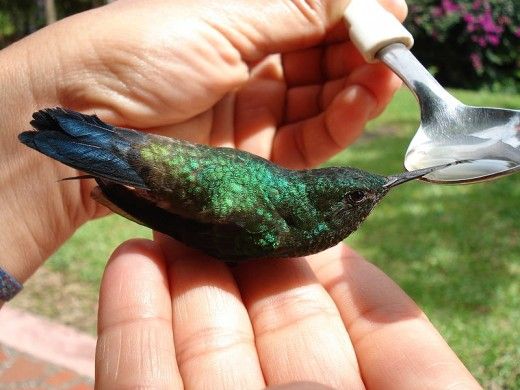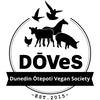 (Photograph courtesy of 'The Hummingbird Rescue Lady of Las Vegas'. ) (Photograph courtesy of 'The Hummingbird Rescue Lady of Las Vegas'. ) "Confronting our feelings and giving them appropriate expression always takes strength, not weakness. It takes strength to acknowledge our anger, and sometimes more strength yet to curb the aggressive urges anger may bring and to channel them into nonviolent outlets. It takes strength to face our sadness and to grieve and to let our grief and our anger flow in tears when they need to. It takes strength to talk about our feelings and to reach out for help and comfort when we need it." (From ‘The World According to Mister Rogers') I have a new hero, neighbours, and his name is Fred Rogers. Fred passed away in 2003 at the age of 75, after a lifetime dedicated to teaching children how to deal with ‘big feelings’ and modelling empathy and compassion through his public television show Mister Rogers Neighbourhood. He was, by all accounts, one of the kindest people who has lived during our lifetime and a long-time vegetarian who didn’t want to eat 'anything that had a mother’. Look him up if you are unfamiliar- he may inspire you, too! As a consequence of all my ‘Mister Rogers’ research, in addition to a little contemplation and soul-searching, I’ve been on a bit of a ‘kindness kick’ for the last month or so-- and my goodness, it feels wonderful! But I must acknowledge that none of us feel like sunshine and rainbows all the time- we don’t always feel like we could just give the whole world a great big hug. Sometimes it is very difficult to be kind. This world is awash with cruelty, sadness, exploitation- of both humans and animals. And our first instinct often calls for retribution--not empathy--when we read or hear about such cases. We want that ‘eye for an eye’. To get even. To see someone treated in the same shabby fashion they have treated their innocent victims. We feel angry- justifiably. Just reading over the 2018 RNZSPCA List of Shame is enough to make one reach for both tissues for tears and a notebook to plot revenge against the perpetrators. For vegans, the sadness and anger increase exponentially as we also consider the victims who are --often legally-- exploited for their milk, their flesh, their bones and sinew. Their fur, scales, hide, horns and shells. Their feathers, pearls and silk. Billions upon billions of sentient creatures caught in a cycle of exploitation and death, and all for human consumption- 56 billion land animals each year. A heart-breaking, overwhelming amount of suffering. But should we hate people for being part of that cycle- for being cogs in the wheel? Does adding more hateful voices to the chorus of suffering help the animal victims? Will putting up more walls between our ‘vegan tribe’ and the non-vegans who we may be tempted to judge create a more just world? It is natural to be angry about the injustice. But perhaps we can channel our anger in to positive means- to transform it into radical kindness. A recent news article reported that an animal rights activist in France was given a suspended sentence after stating on Facebook that she felt no sympathy for a butcher who was killed in the Trèbes terrorist attack. As an animal activist and vegan, I agree with the lawyer on behalf of the deceased butcher’s family who said: “I can understand that you can love and defend animals, but not to the point where you hate humans”. All life is precious and has value- regardless of whether we may agree with the employment choice of the butcher. Can we not also grieve as we have lost a human brother, and show compassion for his family and loved ones? I find myself at a place now when even as I feel deep anger about harm caused to our animal friends, I cannot see the purpose of misanthropy in the vegan movement. We need to change hearts and minds, and it won’t be done through hate. Sometimes our “best” in terms of showing compassion- especially in cases of grievous violence- is to refrain from wishing violence on the perpetrator. And hope they can be rehabilitated- and if not, never again put a position where innocent victims may suffer. After all, most of we vegans started out non-vegan - we ate the results of violence, we may have participated in activities such as hunting, fishing, or other ‘normal things’ which often result in unnecessary death and suffering for the animal victim. Our work is urgent, but that doesn’t mean we should forget to be compassionate- even to those whose actions cause harm. Modelling empathy, the same deep empathy we feel for non-human animals, is vital in order to lessen all suffering in this world. The best we can do is try to be kind. Be kind by leaving animals off our plates. Be kind to those we interact with, both in person and online. Disagree over ideas, but try and refrain from personal attacks or sweeping generalisations. I understand how frustrating that can be at times. There are just so many friendly people willing to eat so much bacon to make up for what we vegans do not, right?! Kindness isn’t capitulation or weakness. It is the greatest strength at our disposal. We can try to channel our sense of justice for all sentient beings into how we treat everyone we meet- especially those who do not share the vegan ethic (Yet!) And we as activists should try to be kind to ourselves, too. Working to educate others about veganism through protest, fundraising, chatting with friends and neighbours can get tiring in a world that by and large chooses omnivorousness at the expense of personal and planetary health. If you are feeling frustrated, take some time out to work through your feelings, and chat with someone understanding if you are able to. And feel free to get in touch with DOVeS folks too- we’ll be happy to help. About the author: Moni is a local vegan activist, wife, and mama. She is passionate about justice, fairness and cooking vegan feasts for her whanau and friends.
1 Comment
|
Archives
November 2021
Categories |

 RSS Feed
RSS Feed
